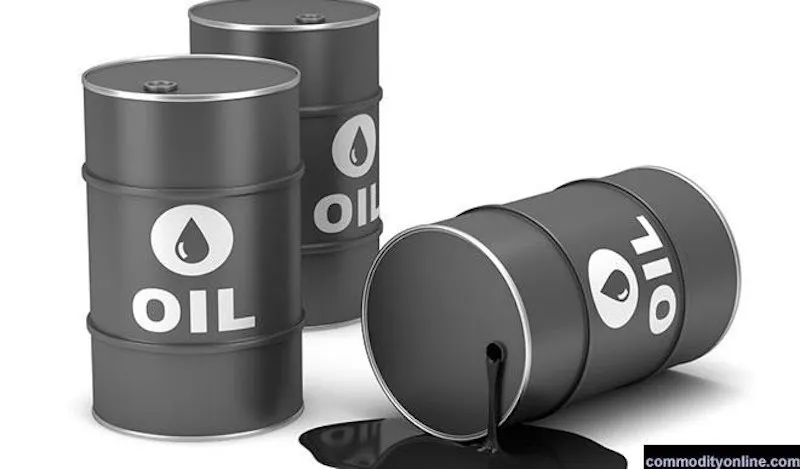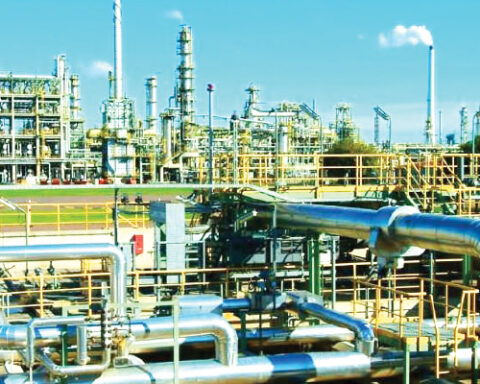Global oil prices showed a minor increase on the first trading day of 2025, reflecting cautious optimism among investors. Brent crude futures rose by 17 cents, reaching $74.80 per barrel by 0547 GMT. Similarly, U.S. West Texas Intermediate (WTI) crude climbed 19 cents, hitting $71.91 per barrel.
This marks a continuation of gains seen on the last day of 2024, with Brent crude up 65 cents and WTI closing 73 cents higher on New Year’s Eve.
Join our WhatsApp ChannelWhat is Driving Global Oil Prices?
Several factors are influencing the global oil market as the new year begins. Economic recovery prospects in major oil-consuming countries and geopolitical developments are key drivers.
- China’s Economic Growth
Investors are closely watching China, the world’s second-largest oil consumer, for signs of recovery. President Xi Jinping’s New Year’s address pledged proactive measures to stimulate the economy, sparking hopes for increased oil demand.
A recent survey by Caixin/S&P Global reported slow growth in China’s factory activity in December 2024 but noted slight improvements in the services and construction sectors. This mixed data points to the potential impact of policy stimulus on oil demand.
- U.S. Economic Policies
Investors are also monitoring the potential impact of U.S. policies under President-elect Donald Trump, who is set to take office on January 20. Trump’s pledge to boost domestic oil production could affect global supply dynamics.
Factors Likely to Shape Global Oil Prices in 2025
- China’s Oil Demand
China’s oil demand is expected to peak in 2025, with consumption projected to rise to approximately 770 million tonnes. This could drive up prices if realized. - India’s Growing Demand
India, now the world’s most populous nation, is set to become Asia’s leading oil market, potentially surpassing China. Rising demand from India could further influence global oil prices.
READ ALSO: Global Oil Prices Rise To $73.05/ Barrel As Market Prepares For 2024 Outlook
- U.S. Production Strategies
Despite President Trump’s pledge to increase domestic oil production, experts caution that private sector dynamics largely control the U.S. oil industry, which may limit immediate output increases. - OPEC’s Role
The Organization of the Petroleum Exporting Countries (OPEC) has struggled to maintain control over oil prices through production cuts. Analysts believe OPEC’s influence in the global market may continue to diminish in 2025.
Impact on Nigeria and Other Oil-Producing Nations
Nigeria’s government has based its 2025 budget on an assumed oil price of $75 per barrel and aims to increase production above 2 million barrels per day.
Market analyst Tony Sycamore highlighted the narrowing price trends on WTI’s weekly charts, signaling the potential for significant movements. “Rather than predicting the direction, we recommend waiting for the break and following it,” Sycamore told Reuters.
Stock Market Updates Linked to Oil Prices
Oil-related stocks have shown mixed reactions in early 2025 trading:
- ExxonMobil (XOM): Up 0.4%
- Chevron (CVX): Gained 0.3%
- Shell (SHEL): Flat
- BP (BP): Marginally up by 0.2%
Uncertainties and Opportunities
As 2025 unfolds, the oil market faces uncertainties linked to global economic trends, geopolitical tensions, and changing energy policies. Investors will continue to track developments in China, the U.S., and OPEC for clues about the future of global oil prices.
Emmanuel Ochayi is a journalist. He is a graduate of the University of Lagos, School of first choice and the nations pride. Emmanuel is keen on exploring writing angles in different areas, including Business, climate change, politics, Education, and others.
- Emmanuel Ochayihttps://www.primebusiness.africa/author/ochayi/
- Emmanuel Ochayihttps://www.primebusiness.africa/author/ochayi/
- Emmanuel Ochayihttps://www.primebusiness.africa/author/ochayi/
- Emmanuel Ochayihttps://www.primebusiness.africa/author/ochayi/

















